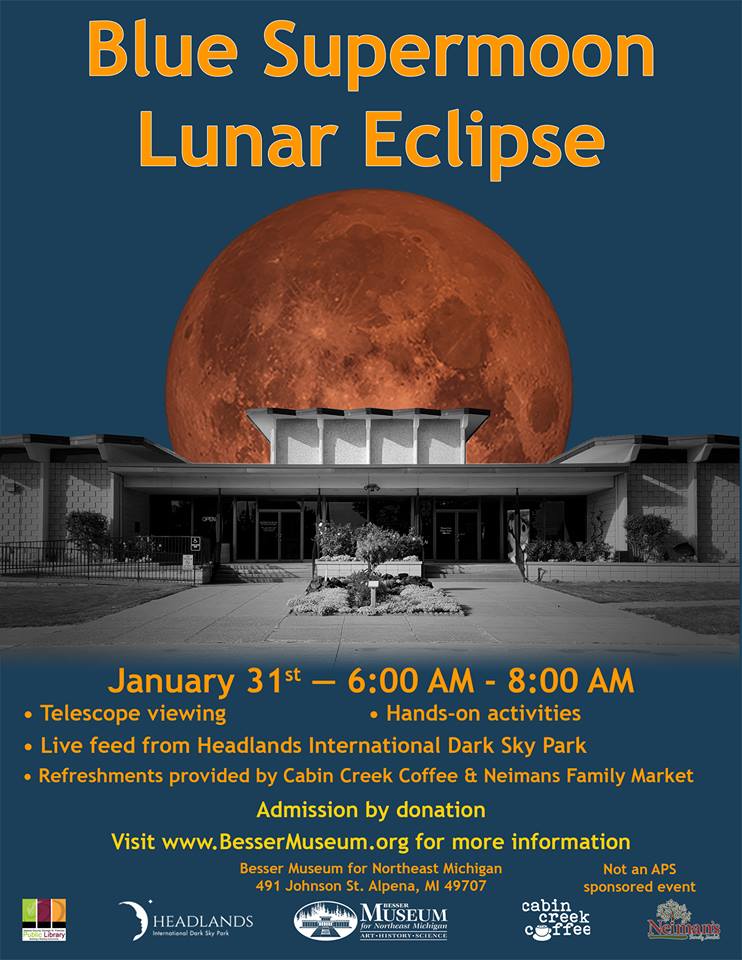A super blue blood red moon on the horizon. Photo by artist John E. Shepler
You’ve heard the saying “once in a blue moon”, but have you ever heard the saying, “once in a super blue blood moon lunar eclipse”? Yeah, we haven’t either. But that is exactly what is happening tomorrow morning on January 31st! Before we get into details on when and where to catch this lunar event, it’s important to understand the terminology so you can adjust your expectations on what exactly you will see.
Blue Moon– does not mean a literal blue moon (unfortunately), this is when 2 full moons happen in the same month. For instance, our last full moon was on January 1st.
Blood Moon– the phenomenon in which the moon appears blood red due to a total lunar eclipse. The red illumination is caused by the way the sunlight is filtered and refracted by Earth’s atmosphere.
Super Moon– this occurs when the moon’s perigee (closest approach to Earth in a single orbit) coincides with a full moon. The supermoon will be at 223,068 km instead of the usual 238,855 km.
Lunar Eclipse– occurs when the moon passes into Earth’s shadow. Unlike solar eclipses, a lunar eclipse can be visible from anywhere it is nighttime.
The best spots to view this phenomenon happening in the early hours of the morning will be any place with an open field of vision and minimal light pollution. Our Dark Sky parks are perfect for these type of events! Try out one of the three: Rockport State Recreation Area, Negwegon State Park, or Thompson’s Harbor State Park. Here are the times to be there:
Penumbral eclipse begins- Jan. 31 @ 5:51:13 am
Partial eclipse begins- Jan. 31 @ 6:48:27 am
Full eclipse begins- Jan 31 @ 7:51:47 am (maximum eclipse will not be visible in our area as the moon will go below the horizon) 
Besser Museum for Northeast Michigan is also hosting a fun event to celebrate this once in a lifetime experience. Join them tomorrow (Wednesday) at 6:00 am where you can track Earth’s shadow across the moon through telescopes. A second view of the lunar eclipse will be shown on the Digital Dome Planetarium Theater. Admission by donations only.
Don’t miss out! Our last “super blue blood moon lunar eclipse” was back in 1866 and the next one will not occur again until 2037!





 420 N. 2nd Ave. Alpena, MI 49707
420 N. 2nd Ave. Alpena, MI 49707 989-340-2288
989-340-2288 